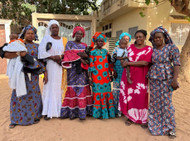It's a Family Affair.
Sep 14th 2022
When Elaine Belleza, who led a creative industry program for the United States Agency for International Development (USAID), sent our founder Robbie Stewart over a decade ago to Senegal to identify a partner for his fledgling import business, the future was murky. The first man they contacted proved untenable. Undeterred, they went to a gallery in Dakar where they met with another man, a Senagalese native who resided in the US. There was no language barrier, but neither was there a spark of connection. Something didn’t feel quite right.
Frustrated, Robbie felt the need to take a break from these unproductive meetings, so he returned to his hotel in the beach town of Saly and contacted a surf coach he knew. This interlude with the sea seems to have worked some unforeseen magic, because when he was done surfing he received a message from Fatou Ndiaye, whom he’d met at the West African Trade Hub on an earlier trip. Robbie instantly followed up, letting Fatou know he was in Dakar. He felt this meeting could be fortuitous, and he was right: When she and her father came to meet him, he knew there was a way forward. As the saying goes, “The third time’s a charm!”
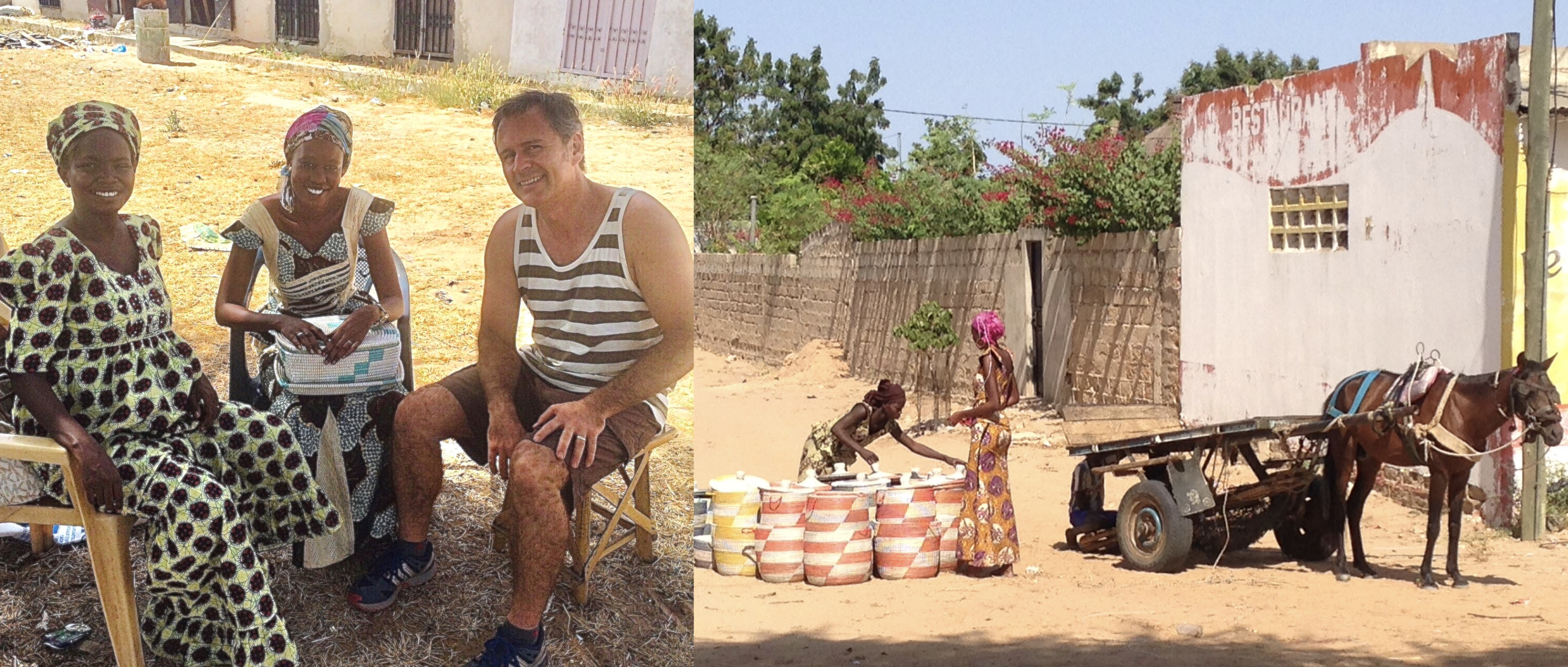
Robbie with Fatou and master weaver and coordinator Ndeye Diouf when they first started working together; Artisan women counting baskets for a shipment
Their partnership may not have seemed likely, because Fatou was as green as he, but Robbie forges relationships with individuals he likes and trusts. Personal connections are more important than particular skill sets or years of experience. He believes “you can train for production, but not for character.” Fatou and her family have proven him right. Their business, Deco Art Senegal, didn’t exist when this meeting took place, but since that time, their family operation in Mehke in the region of Thies has provided Mbare with thousands of handwoven baskets that we ship to individuals, retailers and museums around the world. And Fatou, her father and brother have provided hundreds of craftswomen in rural villages outside of Dakar with the means to provide for their families.
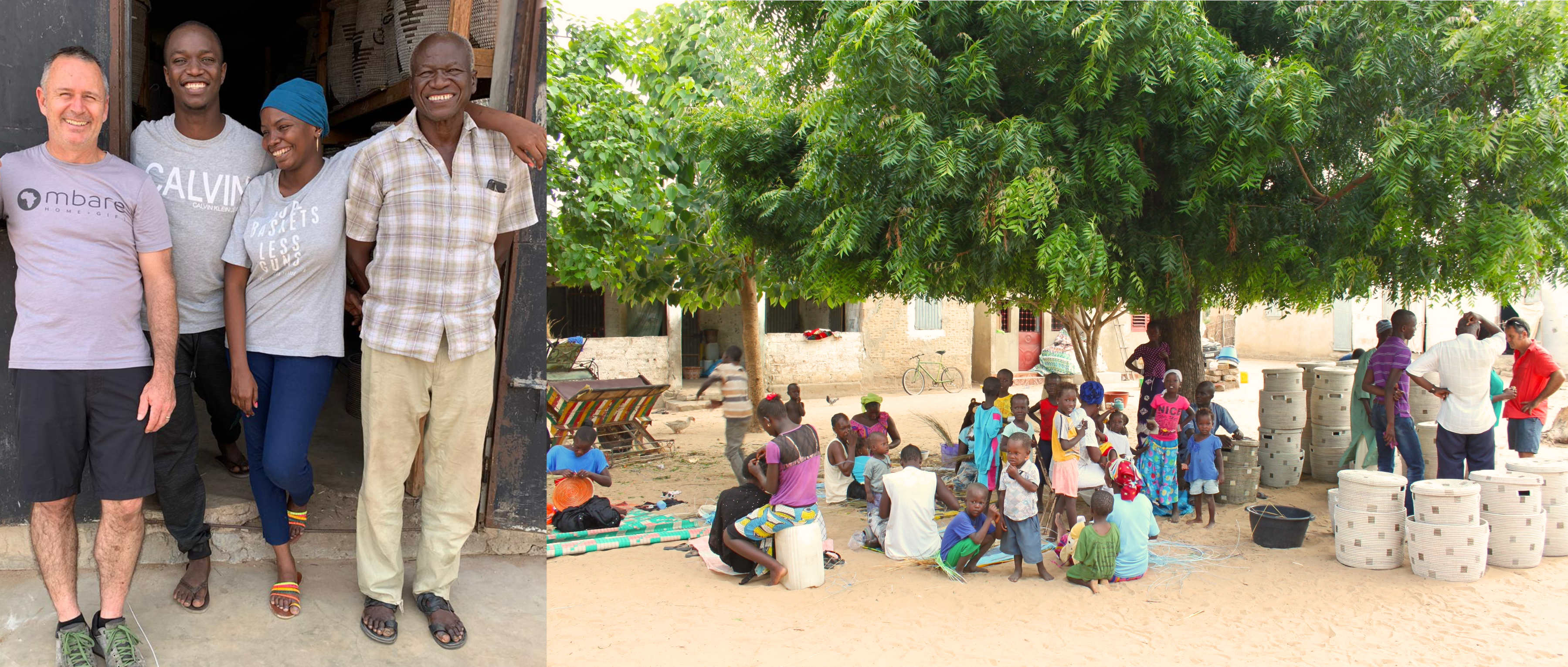
Robbie and Fatou with her brother Idy and father Pape; Basket weaving (and life!) happening under the big tree at the center of the village.
According to USAID‘s Global Market Assessment for Handcrafts (Volume 1), “Buyers of all types prefer multiple product options to choose from, flexibility to make design modifications, and, above all, reliable partners. [Emphasis ours.] There are countless sources of product in the world vying for attention; what buyers seek most are items that sell from a producer who can deliver.”
In Deco Art, Mbare found that reliable partner. It’s culturally appropriate for Fatou to oversee the operations of the local artisans with whom she works, and it’s our mission to support her efforts to get their goods to a global market. Robbie and Fatou trust each other, and together, they trigger a positive ripple effect.
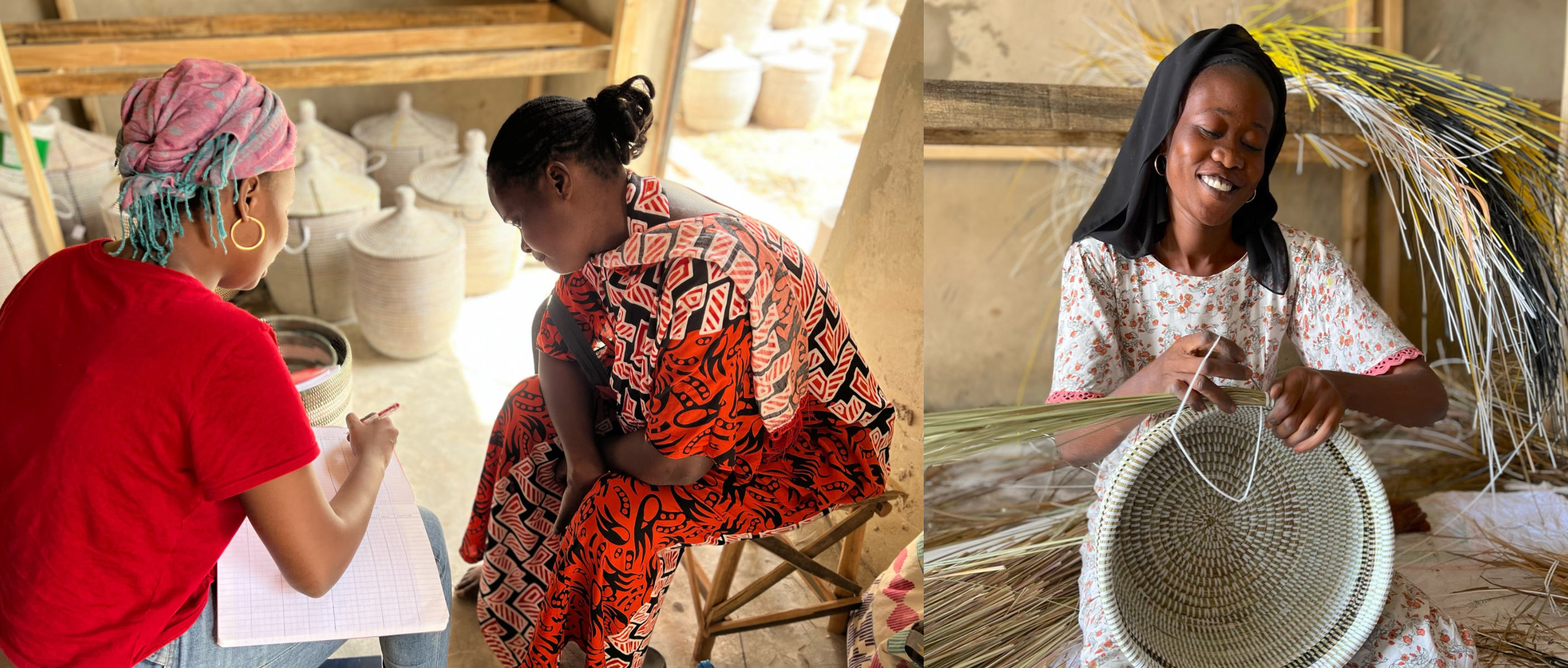
Fatou recording production with an artisan; Master weaver Ndeye Diouf doing what she does best.
A lot has changed since Robbie took that trip prompted by USAID. He went from not knowing how he was going to fill an order from a well-established, high-end retailer to being responsible for a warehouse overflowing with a multitude of crafts imported from Africa – most predominantly the appealing, functional baskets painstakingly crafted in the shade of Senegalese trees.
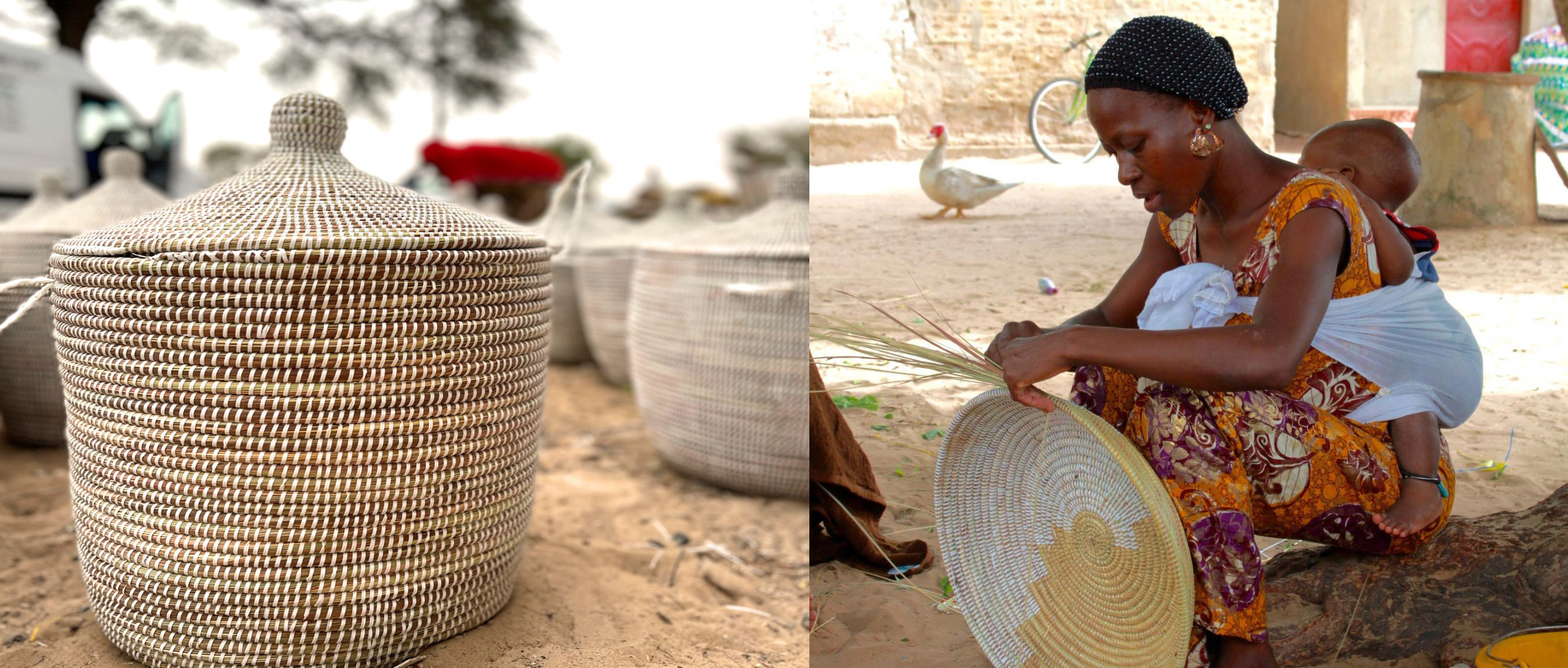
White basket waiting to be counted in a row; Artisan mama weaving under the tree with baby on her back.
Recently Robbie’s 10 year old son Rocco accompanied him to visit Fatou at Deco Arts, where Kara Hook, another member of our team, had already arrived. Together they went to Thies, a village about an hour from Deco Art’s warehouse. It’s Robbie’s belief that connecting the artisans with their partners from so very far away is essential to fair trade. These excursions strengthen our reciprocity: They embody the link between local and global, between self-sufficiency and interdependence, and highlight the microcosmic and the macrocosmic nature of trade.
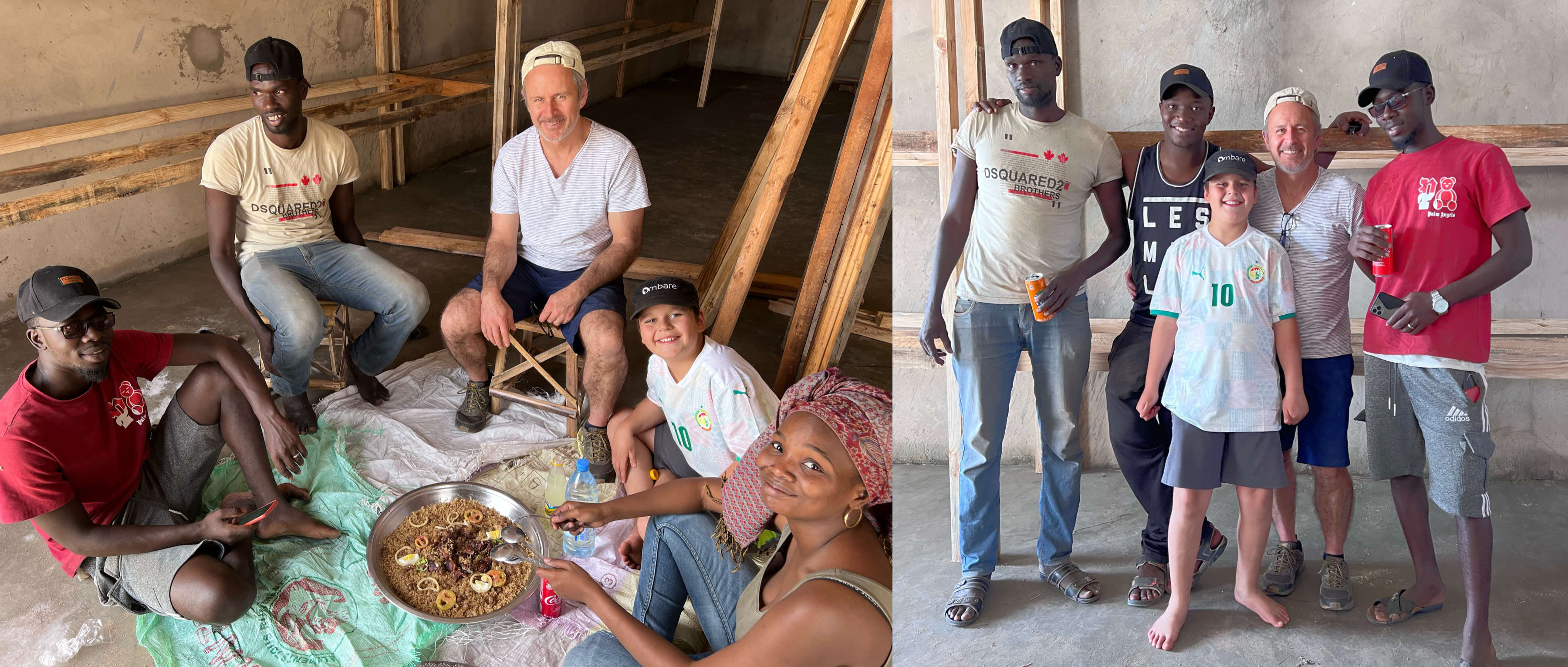
Robbie and his son Rocco, with Fatou and the warehouse team sharing a meal as it is traditional in Senegal.
The ripples that emanate from a relationship established long ago have reached the next generation: Fatou of course interpreted, but Rocco seems to have communicated quite well on his own with the dozens of kids playing soccer while their mothers wove. Unlike here in the US, there was no need to cart the kids to daycare. Rocco describes a scene of joyful cacophony, and reported that the women “had really cool, colorful dresses. And that’s their everyday wear!” Clearly an eye for beauty and an appreciation of cultural differences runs in the family.
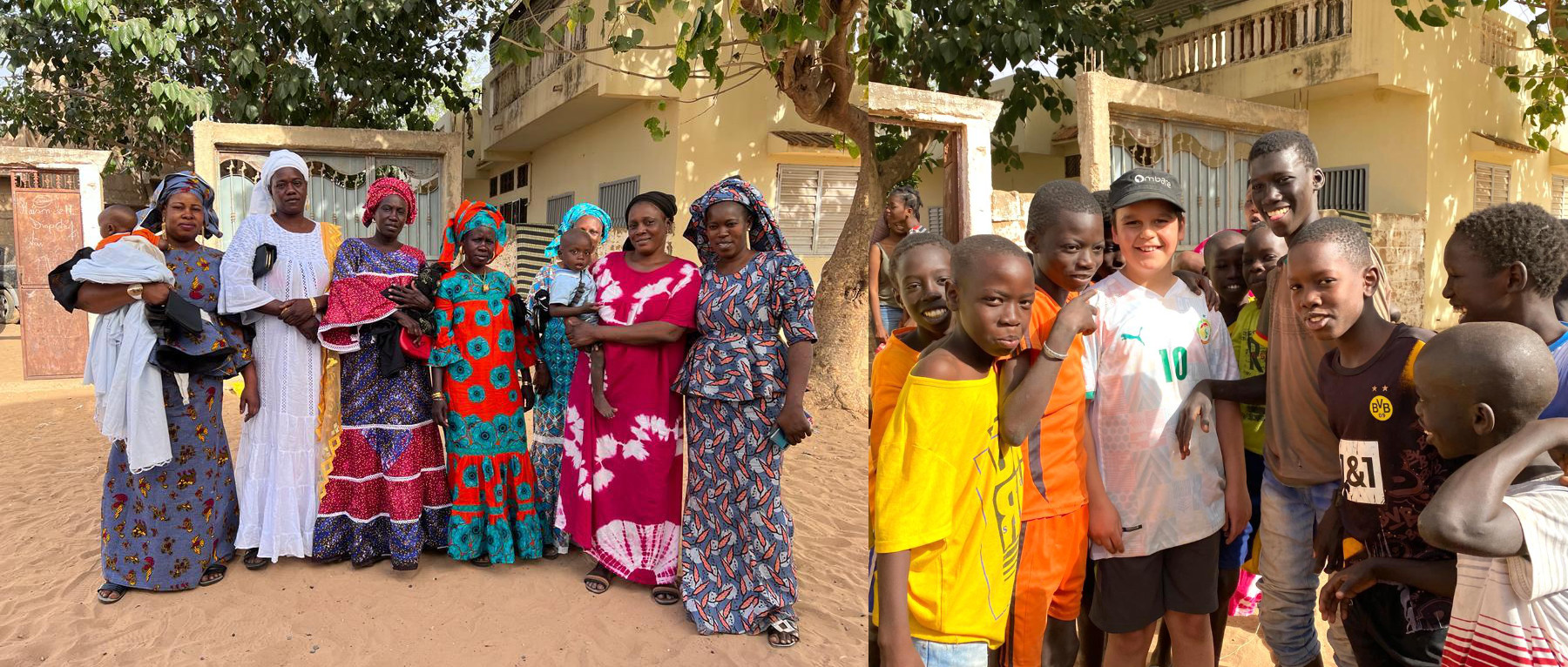
Artisan weavers in their colorful traditional dresses; Rocco hanging out with the village kids.
When our team offloads an eagerly awaited container, our busy Western hands carry the creations of the skilled, patient hands working on the other side of the ocean. We inhale the grassy scent of Senegalese cattails; we admire the beautiful baskets these women weave – often with babies on their backs; and we know the meaning of community. We are but one branch of a vast, yet tight, productive human family.
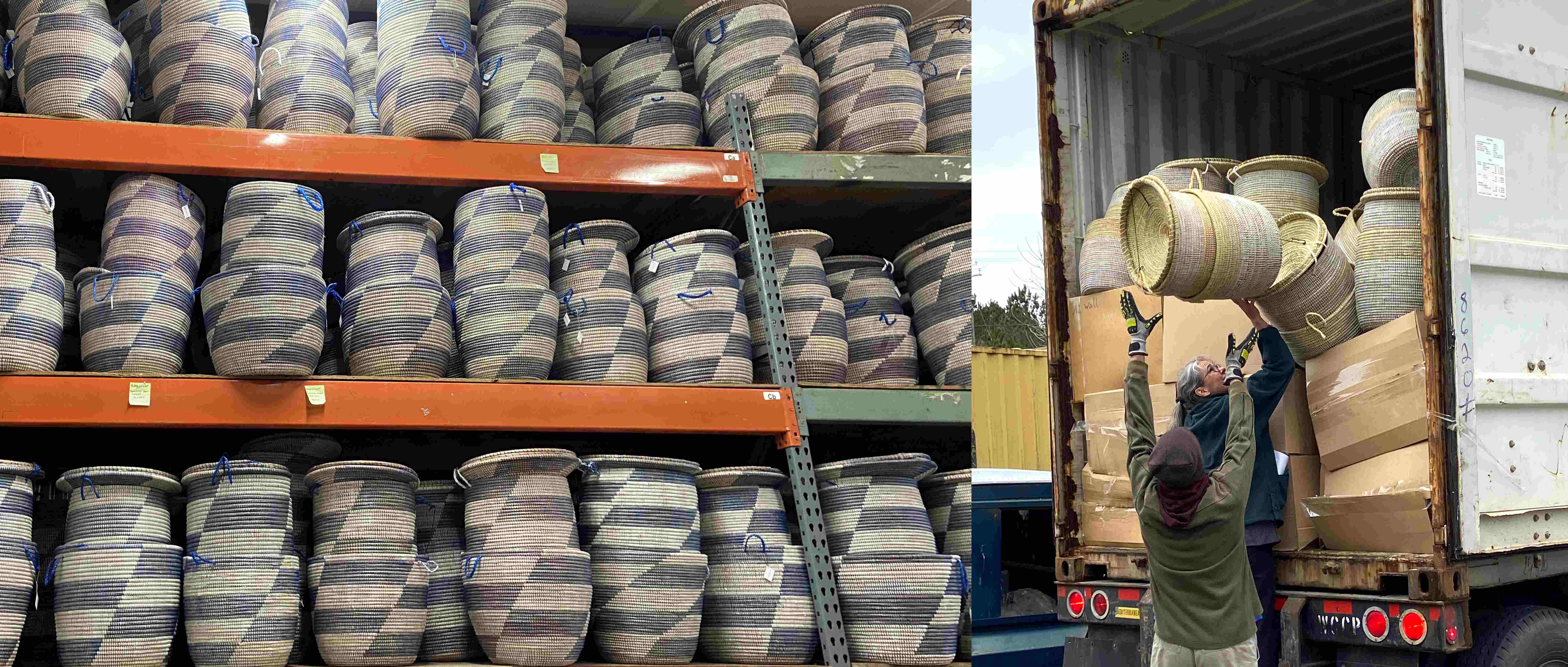
Mbare shelves stocked sky high with amazing Senegalese baskets; Shannon and team offloading a container from Senegal

